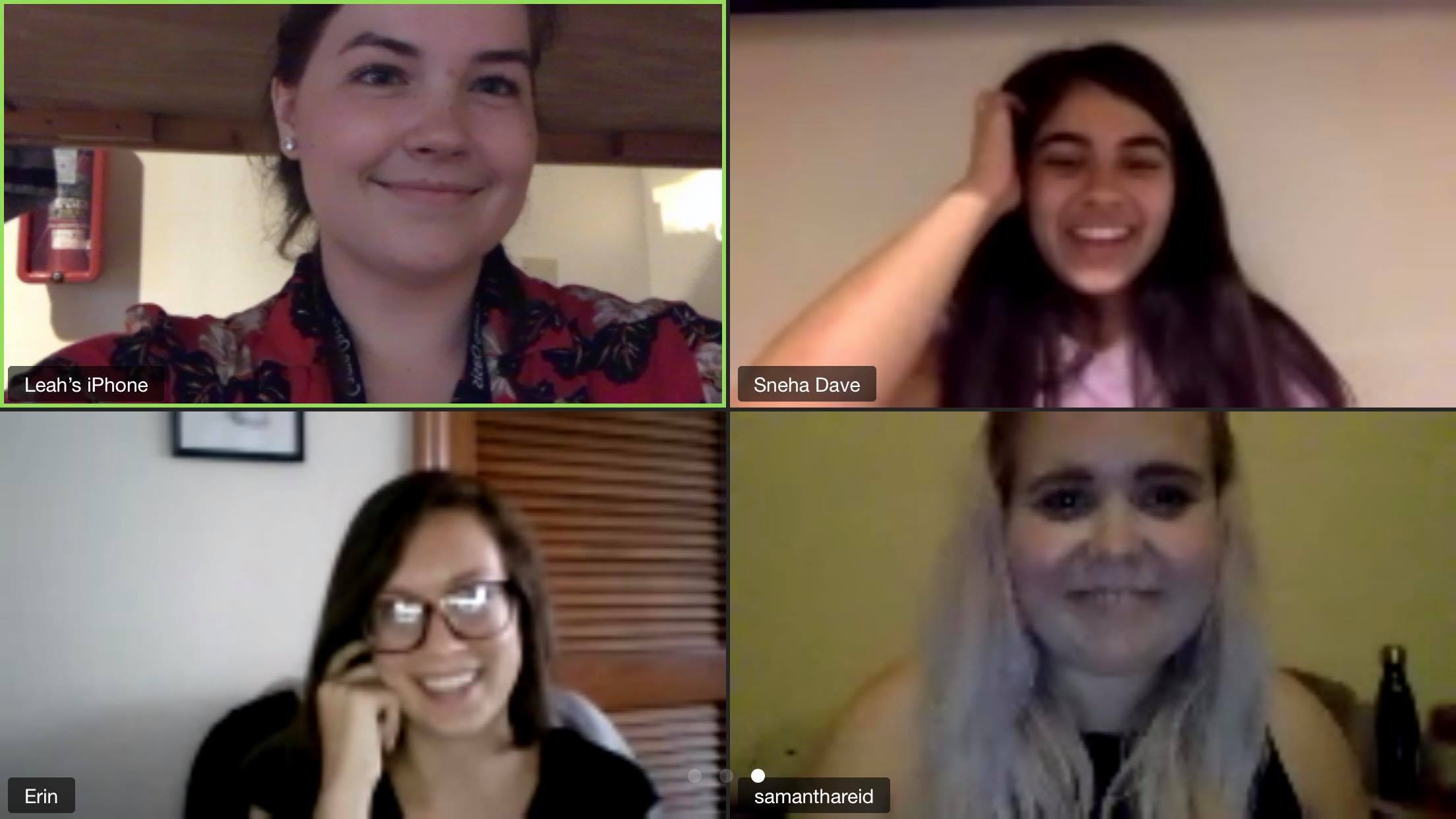
NEWS
My IBD Life - Ode to Despair
I sat down to write this article with the intent of describing some personal experiences with my family and friends during a period of progressing sickness that eventually led to surgery. It’s very hard for me to segregate various aspects of that time. I was struggling on many fronts. Everything seems so intertwined. I probably would have managed better, if the only thing I had to worry about had been my health. Sometimes, I wonder if I could live through that again. The worst parts of that period were the nights. Serially failing medications had brought me to a point where I was living with severe chronic pain and total incontinence. Every night I would go through a sequence of muffled crying, screaming, and dancing, to wither and end up on the floor like a lifeless body. I did that deliberately to tire myself out and fall asleep. Every night it was the same routine. Some nights, the urge to end it all was too strong to resist. I dreaded the nights and took up a night job to cope. I thought if I forced my mind to concentrate on a job, it would help with the pain. I’d suffocate at work, and even had “accidents” at work, despite wearing diapers. Everyone around me in my home or outside was oblivious to what I did to myself in my room in the dark. My coping mechanisms bordered on the psychotic. I would strangulate my body parts to make them numb. I would try to substitute the pain with another kind of pain by using an excessively hot pad. The pain was too much. The blood was too much. The nights were too long. The thing that hurt more than the pain was that every medication would make a mockery of my attempts to live. Early promising results followed by a rapid decline leading to increased symptoms were a pattern. At my core, I’m not a very hopeful person. My life circumstances have molded me into a deeply introverted and pessimist personality. My mind constantly tries to simulate everything that can go wrong and I try my best to put control measures in place. With this disease though, I was helpless. I read vehemently, but I was not a doctor. I forced myself to cultivate hope with every new medication. However, I always ended up dejected. Sometimes, I felt like a bloody soldier struggling to stand straight, kneeling on the ground against his sword, and waiting for all of it to get over.
As I started reminiscing those nights, my intents changed. I wanted to describe that cycle of hope and consequent despair to someone. It resulted in me writing a poem which I’m sharing here.
They tell me the war is over and we won.
They tell me that the night is at last, gone.
They tell me the sun’s rising on the horizon.
They tell me, they tell me it’s a new dawn.
They tell me the same things again and again.
And each time they say it, I believe them.
I hide from my fears, behind a translucent curtain.
Weak ropes of hope bear the weight of my pain.
Soon it all comes crashing down to the ground.
And I see them again. The blood-hungry hounds.
Dread sets into me as they approach and surround.
Every inch of me bleeds. My screams resound.
And when it’s all over, I look down from the edge.
Frail, pale, broken, and defeated, after the rampage.
No antidote to my ailment, my soul feels caged.
Desperate, I am prepared to embrace the only escape.
“Stop! Don’t!” I hear a voice break the silence.
I recognize the voice. It’s them. Once again.
They praise my resilience. Talk about Providence.
Promise me there’s a reason for my existence.
They look to infuse me with hope and faith.
They tell me tales of the fierce and brave.
Why then I don’t believe what they say?
Oh! It’s because, soon after ...
They tell me the war is over and we won.
They tell me that the night is at last, gone.
They tell me the sun’s rising on the horizon.
They tell me, they tell me it’s a new dawn.
There was a time when I tried to capture my pain in words. I was better at writing then. With time, the writing started to feel like a futile exercise. The nights never went away. Instead, I now try to repress those experiences in some corner of my brain as I have done with other traumatic incidents that I have lived through.
My doctor once told me that there were only 2 patients other than me under his care, with a severity of disease that was similar to mine. I felt sad, but then I realized it’s a good thing that more people do not go through such experiences. However, I’m sure there are enough like me in my country which has a population of 1.3 billion, but I’m not sure if everyone is as lucky as me. The mental health of patients with Inflammatory Bowel Disease has never been a priority in the Indian Healthcare system. It’s time that we begin to provide holistic support to young adults with inflammatory bowel diseases to enable them to manage this disease better and come out of the experience with as little residual trauma as possible.
Please stay safe and take care. See you next month. :)
Thoughts on IBD in the Workplace
Please provide your most recent job history. Done. Proceed to the next page. Do you have a disability that you would voluntarily like to disclose? This can include autism, blindness, cerebral palsy, missing limbs, autoimmune conditions like lupus, gastrointestinal diseases like Crohn’s disease or IBS…I blinked, and stopped. What did I just read?
In the past, I had always checked No, I don’t have a disability or history of disability. But now, as I start to look for Physician Assistant (PA) jobs, I can’t ignore the fact that I live with ulcerative colitis (UC) and flares can rear their ugly heads even when I take the best care of myself. I never had to sit and ponder this question before. Because of the way disabilities are viewed by most people, stigma swirls around it, leaving previously unaffected people like me unaware and uneducated about progress being made and the struggles still faced in the workplace. Disabilities are commonly viewed with negative connotations - several of my coworkers and other colleagues that live with chronic illness and/or disabilities have highlighted this and spoken powerfully against this negativity. Living with a disability doesn’t mean that you don’t have as much to offer. The people I’ve met through the chronic illness and disability community are some of the most resilient, creative leaders I know. We face our challenges and continue living and advocating against all that is physically or mentally against us - we have to draw incredible strength and grow up sooner and in ways that most others don’t.
However, I still struggled with multiple emotions as I sat, mulling my thoughts, stuck on this page of a job application. I have never considered myself as a person “who has a disability.” I felt guilty - would those with disabilities think that I don’t support them since I don’t want to group myself with them, giving myself another label that’s often viewed as weak? Am I misrepresenting those who do have disabilities because my UC has been so mild and I am largely functional? I felt that I don’t belong in the “disability group”, but I also can’t deny that I have a chronic illness that can be disabling in a variety of ways. I definitely consider myself lucky and blessed, but I know that my UC can change throughout my life and potentially become more difficult to control. I struggled to work through these thoughts, but then thought about how my growth this year from being more involved with advocacy has given me tools to advocate for myself and to continue learning from this community.
My options were:
Yes, I have a disability, or have a history/record of having a disability
No, I don’t have a disability, or a history/record of having a disability
I don’t wish to answer
What should I choose? It had to be either #1 or #3. I couldn’t lie - I was more afraid that it would not go over well if I did get the job and had to bring up my UC later to my employer. But then, if I marked “yes”, could that jeopardize the chances of me getting interviewed or getting a job? I’ve heard awful stories about those who hid their disability from their employer because they knew it would affect them being hired or even interviewed. Luckily, I was working with another healthcare provider who had been diagnosed with lupus over the past year and was also learning how to navigate her chronic illness in the work environment. I asked her what she thought and we ended up having a candid conversation - I realized that if marking “yes” caused me to not get an interview or a job, then that job wouldn’t have been supportive enough for me anyway. Perhaps this is my stubborn streak coming through, but I hope that working in the medical field will hopefully make potential employers more understanding. However, I know that the stigma that encircles chronic illness and disability still permeates the workplace, and this fact will stay on my mind throughout my job search.
In the end, I did mark “yes.” It is more important to me to have the chance to advocate for myself and be supported rather than hiding my diagnosis out of potential embarrassment or fear of how I would be treated because of it. Maybe this will backfire, but by being up front about my UC, I’ll feel more comfortable in my workplace. I hope that I’ll be supported enough to communicate any issues I’m having or if I do end up needing some sort of accommodation in the future. I’m very excited about applying for jobs and starting this new chapter in my life and career as a PA, but I still have much to learn about disability in the workplace. I hope by learning to navigate these waters, I can help others who may be in the same situation - questioning if they fall into the disability category or not, wondering how they should approach disclosing (or not disclosing) their condition to their employer. Since the US just hit the 30th anniversary of the Americans with Disabilities Act, I also plan to continue to educate myself and learn more about the disability community in conjunction with chronic illness. We should never have to choose between our career and our health, and I hope I can join many others who are working to make this a reality for all who are affected by chronic illness or disability.
Advocating for Your Illness in the Workplace
A word with health advocate, Samantha Reid
The CCYAN fellows recently had a chat with IBD blogger and health advocate, Samantha Reid, to discuss her take on managing IBD in the workplace.
CCYAN Fellows Leah Clark, Erin Ard, and CCYAN founder,
Sneha Dave, video-chatting with Samantha Reid
In February of 2010, Reid received a surprise that she never anticipated for during her birthday celebration. Three days after she turned 18, she was diagnosed with Crohn’s disease and began her adult life with questions, concerns, and ultimately, an ambition to help others with her disease.
Reid has had her fair share of experiences navigating her Crohn’s disease both in college and work. Majoring in english in college and working as a communications director at her previous job, Reid gained a solid foundation in writing, communication, and outreach. Now, her job allows her to focus on health and advocacy in the professional environment. Currently a digital director for the nonprofit organization, Patients for Affordable Drugs, she strives to change policy to lower the price of prescription drugs. Patients for Affordable Drugs is a patient organization, and Reid actually started there as a patient, so her peers understood her illness and created a safe environment for her to work in. Reid understands, however, how fortunate she is to be working in a flexible environment that meets her accommodations.
“I realize the fact that I’m even able to disclose my disability to my boss and coworkers is a privilege, and not everyone has that ability.”
Reid went on to encourage those with IBD to “play it by ear” and do what one feels comfortable with when discussing their health with their boss and coworkers. Disclosure can not only be an important step in establishing a safe work environment, but it can also be used as a learning opportunity for your peers. “It allows me to be more open and it allows my supervisors to be more open as well; it creates a space for dialogue,'“ Reid explains.
Along with being the digital director, Reid also has a successful blog, Sicker Than Your Average, that she frequently shares experiences with IBD on. She explains how her presence on social media has helped her with IBD advocacy with her work. “For all of my adult working life, most of my coworkers have known about my illness by default. Whether they know because they follow me on social media and see my advocacy work or they know because I’ve had to postpone a meeting because I was sick, most of them know.” Reid expressed how important communication upfront can be when tackling IBD at work. Giving your boss and coworkers a heads-up when sensing a flare or preparing for many doctors appointments can not only give you a sense of ease with planning, but also can inform your peers about the severity on an issue. With invisible illnesses, it can be hard to truly express how important your health is when others can’t see your pain.
“When it comes to asking for accommodations, communication is key. Any workplace that would be retaliatory about me needing accommodations is NOT somewhere I would want to work.”
Sometimes IBD can feel as though it is getting in the way of performing your best at work.
It’s important to remember to do what feels comfortable to you and prioritize your health.
Communication is not only good for planning for the future, but it is good for setting up workplace accommodations. Accommodations are there to alleviate any hardships put in place because of your illness. These can include having your office desk closer to a bathroom or having options to work from home. “In my current position, I have an agreement with my boss that I can work from home every Friday. Because of my Crohn’s, I struggle with extreme fatigue, so even having one day a week where I don’t have to get dressed up and commute saves so much in terms of my energy levels,” Reid explains. She said it makes an enormous difference to her, and she feels valued at a workplace that can accommodate to her needs.
One topic that Reid discussed when advocating for yourself in the workplace is the drive to, in a sense, redeem yourself to your coworkers when you are feeling healthy. It’s understandable to feel pressure at work to perform well, especially when you feel as though you are slacking because of your health. Missing work because of appointments, hospitalizations, and just sick days in general can cause one to feel inadequate in their job performance.
“For me, when I am feeling well, I probably overcompensate at work to prove myself. No one asks that of me, but I know it’s important to gain that goodwill while I can so that when I fall into a flare, people are more understanding.”
It’s important to realize that it is okay to take time for yourself to get better. For many IBD patients, health is a number one priority, and people will be understanding. Showing your boss and your coworkers, when you are healthy, that you can do your job right and well is completely fine.
With all the advice Samantha Reid gave the CCYAN Fellows, it’s clear that she is a remarkable IBD advocate and presence in the community. Her constant dedication to IBD awareness is shown through her work and her attitude towards life. Her insight on what to do and what not to do when it comes to advocating for your illness is the workplace comes from years of experience. Making efforts to communicate effectively with your boss and peers, setting up boundaries and accommodations to meet your health needs, and putting your health first when necessary are all great ways to help those with IBD navigate their work with ease. We at CCYAN hope those in need can use this advice and pursue their career goals without feeling held back by their diseases.
The CCYAN Fellows would once again like to thank Samantha Reid for taking the time to discuss this topic, and they look forward to seeing more of what she does in the future with health advocacy.
Samantha reid
Samantha Reid is an exceptional health advocate and role model in the IBD community. Her insight on advocating for yourself in the workplace not only those with IBD great advice, but also sheds light to important issues on workplace accommodations for all. For more information on Samantha Reid and places to connect with her, check out her social media and other platforms
Blog | Instagram | Twitter









